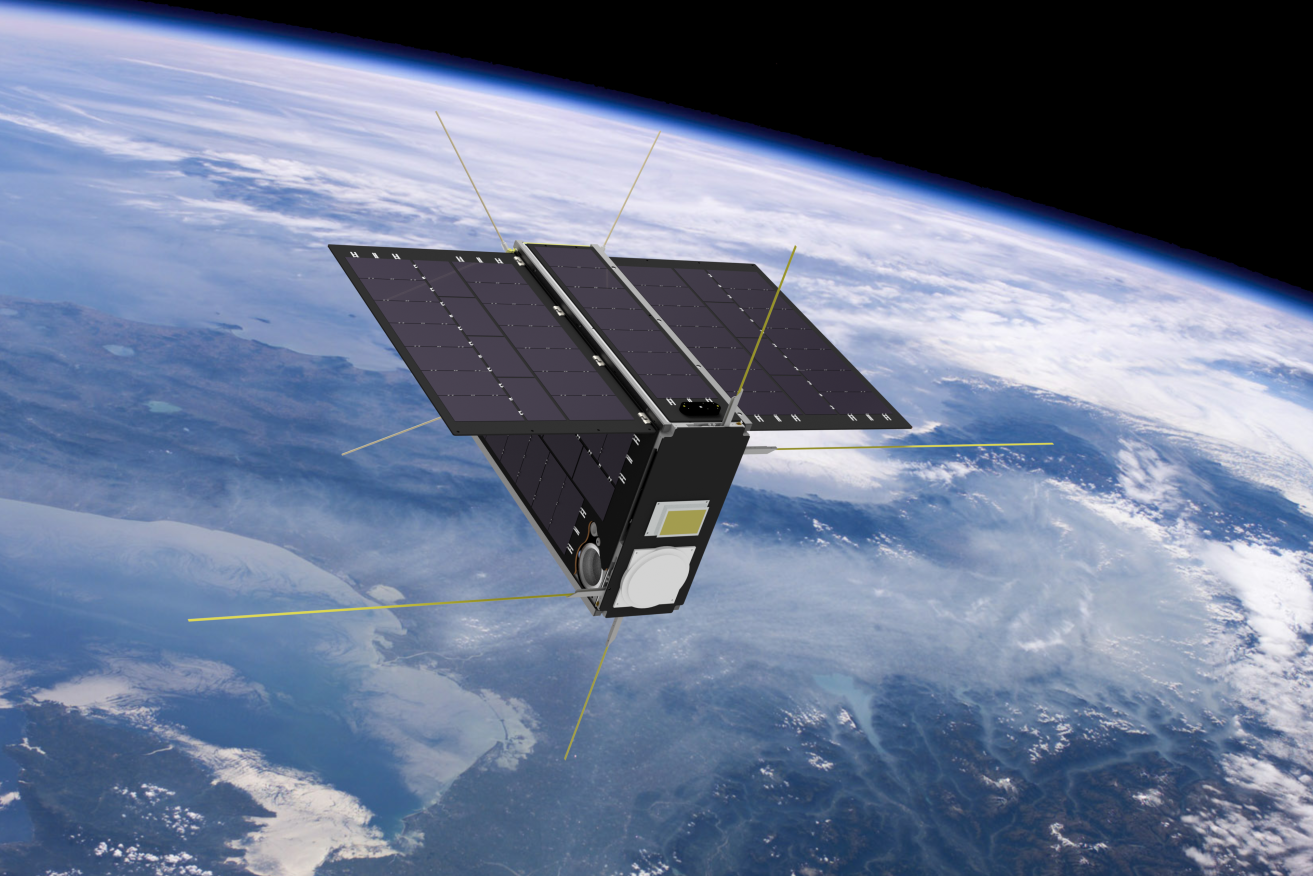SA’s $6.5 million ‘satellite the size of a cereal box’
A satellite “the size of a cereal box” will be subsidised by $5 million of public money, with the State Government lauding the project as a major boost to South Australia’s credentials as the ‘space state’.

An impression of the proposed satellite drawn by Alex Priest of Inovor Technologies.
The public-private partnership – which will cost $6.5 million in total – aims to send a locally-built small satellite into ‘low-Earth’ orbit, gathering data that will be used to inform critical state services including bushfire control, environment, water quality monitoring and mining.
The mission will be led by the Lot Fourteen-based SmartSat Cooperative Centre in partnership with local satellite manufacturing firm Inovor Technologies and space data company Myriota.
SmartSat CRC chief Professor Andy Koronios praised the Government for supporting his company’s “groundbreaking [and] visionary initiative”, to “deliver a satellite the size of a cereal box”.
“You might say that doesn’t seem [so] impactful, but it has the potential to be highly impactful [and] game-changing,” he said.
The six-unit Apogee satellite bus will be launched into orbit in 2022, although the specific date and launch location are as yet unknown.
Koronios insisted the venture would “not only grow our industry but really enhance the lives of everyone in SA”.
“It will allow our business to really grow and strengthen and actually supercharge the competitiveness of local businesses so they can become global players [so] they can sell to the world instead of vice versa,” he said.
“We have a dependency on the global supply chain, and this current state of COVID-19 has brought into view the kind of problems we have with the global supply chain.”
While he noted SA’s status as a global player would not be achieved from “one single satellite”, he added: “From little acorns, big oak trees grow.”
Premier Steven Marshall said the Government had already spoken to Australia’s Bureau of Meteorology about accessing the satellite’s data, which is controlled by the state.
“There are so many applications, both here and overseas,” he said.
“We want to be working with other agencies and nations.”
He said the project was part of a “revolution in terms of satellite technology”.
“We’ve gone basically from a very small number of very large satellites – the size of a bus – orbiting the earth, towards a constellation of very small satellites operating together in those constellations to give us that data,” he said.
Asked whether there would be the ability to monetise the project, he said it “delivers on multiple levels”, from “inspiring young people to move into this sector” to developing sovereign capability, to “space diplomacy” in “creating a ‘space bridge’ with other space industries right across the world”.
“To be manufacturing satellites in the centre of our CBD is quite extraordinary,” he said.
“We’ve been, if you like, the receiver of lots of their technology here in the past and now we want to contribute.”




